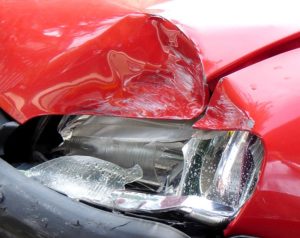
The role of automobile insurance
The basic purpose of automobile insurance is to cover you if you become liable for the injuries or damages of someone else, following a car accident. However, in hit-and-run situations, by definition, you do not know who the responsible party is, much less their automobile insurance information. In that case, your own insurance will likely be your only source of compensation.
Uninsured Motorist Coverage
In some states, insurance carriers are required to offer a minimal amount of Uninsured Motorist Coverage to policy owners. Some states go so far as to required drivers to carry a certain amount of Uninsured Motorist Coverage (UIM). You have the option of purchasing more than the minimum coverage required. You also have the option to purchase Underinsured Motorist Coverage, which is similar to UIM coverage, as it provides compensation when the at-fault driver has insurance, but not sufficient coverage in your case.
Justifying Uninsured Motorist coverage
In a hit-and-run accident, uninsured motorist coverage would most likely be the primary source of compensation. Since the other driver cannot be found, it is analogous to the other driver not having insurance. You must report the accident to the police and your insurance company, as you would with any other auto accident. Depending on your police and the state where the accident occurred, you may be required to prove physical contact with another vehicle or, at least, provide an eyewitness other than yourself or your passenger.
Purchasing additional liability coverage
In addition to Uninsured/Underinsured Motorist coverage, many people also purchase coverage up to the limits of their liability coverage. In other words, if your policy carries liability limits of 100,000/300,000 ($100,000 per person/$300,000 in the aggregate), you could purchase 100,000/300,000 of uninsured coverage for an additional premium. This could be a very useful investment if you are ever involved in a hit-and-run accident.
Personal Injury Protection Coverage
Personal Injury Protection (PIP) coverage pays for medical expenses and lost wages for individuals who have been injured in a car accident. If you are the victim of a hit-and-run, it is possible to make a claim under your own PIP coverage. However, in some cases this may increase your insurance premiums.
PIP Coverage differs from state to state
What is covered by PIP can differ from one state to the next, based on what each state considers to be customary and reasonable. There are some things that PIP does not cover. For instance, PIP coverage does not cover damage to your vehicle, and it usually typically does not compensate for “pain and suffering” and emotional distress related to the accident. Most states make PIP coverage optional, including Arkansas and Missouri. But in 14 states, this type of coverage is mandatory.
Personal Injury Protection Coverage in Arkansas
In Arkansas, PIP coverage can be purchased one of three ways: medical payments, lost wages, and death benefits. Medical payments cover such things as doctor bills, ambulance fees, and X-rays. PIP coverage protects you and members of your household injured or killed while riding in your automobile. Any passengers who are not members of your household may also be covered if they do not have their own coverage.
Personal Injury Protection Coverage in Missouri
Although Missouri car insurance does not require a minimum Personal Injury Protection (PIP), there are advantages to having this type of coverage. For example, if you ever have an accident, PIP will pay for your and your passengers’ medical expenses. For more information on auto insurance coverage requirements in Missouri, see the Missouri Department of Insurance.
Collision Coverage
As a last resort, you could always make a claim against your own collision coverage. At the very least, it would cover the damages to your vehicle. However, there is a chance that your insurance premiums would increase after the claim. Ultimately, your decision will depend on how extensive your damages are and the cost of your repairs.
If you have questions regarding car accidents, or any other personal injury issues, contact the Cottrell Law Office either online or by calling us at (888) 433-4861.


